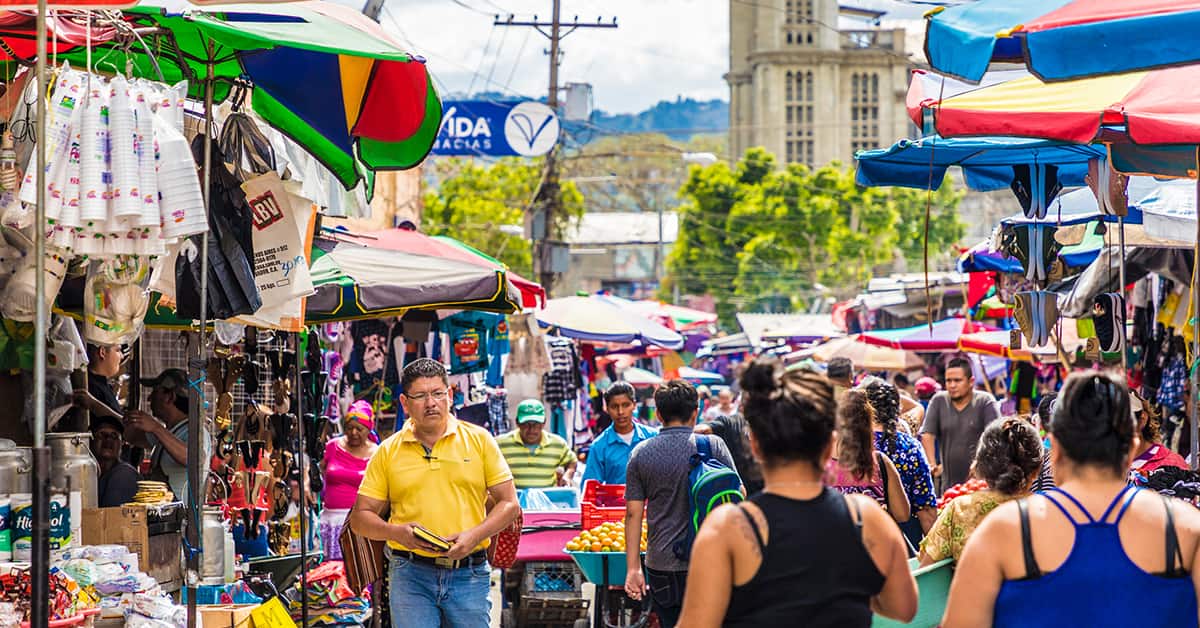Can reserve currency status be far behind?

Earlier this week, El Salvador made history when its legislature passed the Bitcoin Law to make the digital currency the nation’s second official currency behind the US dollar, which has been the official currency since 2001.
The bill passed the chamber by a comfortable majority, with 62 of the 84 representatives of the Legislative Assembly voting in favor of the bill on June 8.
Meanwhile, Argentina, Brazil, Mexico, Panama, and Paraguay are said to be interested in passing similar laws to tackle inflation, increase financial inclusion, and attract tech investment.
The Bitcoin Law states that the exchange rate between the dollar and bitcoin will be “freely established by the market” and that taxes can be paid in bitcoin. Prices can also be quoted in bitcoin, and “economic agents” (individuals, firms, and governments) must accept bitcoin as payment for goods and services.
“Bitcoin being used as a unit of account, where prices are displayed in BTC, is the final phase in the bitcoin mass adoption process,” said Ben Weiss, CEO of CoinFlip, a crypto ATM provider. “If more countries join in and successfully undertake bitcoin as legal tender, more and more people would be owning and using bitcoin daily. Bitcoin is scarce, and its price depends on the principles of supply and demand, so it is easy to imagine the potential price effect of the wide-scale adoption of bitcoin as a legal tender.”
For accounting purposes, however, the US dollar will remain the reference currency in El Salvador.
“If taxes are collected in bitcoin then El Salvador will need to hold some of its national reserves directly in bitcoin,” said Ulrik Lykke, executive director at digital asset hedge fund ARK36.
“One important consequence of this move would be that financial regulators and tax authorities would have to redefine how to perceive bitcoin given there’s now a strong argument for classifying it as foreign currency,” he added.
Bitcoin’s volatility and its use more for speculation than as a unit of exchange or store of value mean regulators have treated it more like a commodity or security than a currency. However, if it becomes legal tender, they will need to rethink this approach. According to Lykke, if regulators classify bitcoin as a foreign currency, more investors could diversify their investment portfolios by adding bitcoin.
As legal tender, holders would pay no capital gains tax used or sold bitcoin in El Salvador, which could attract crypto inflows from offshore investors looking to avoid capital gains exposure. The country also could become a hub for onshore bitcoin convertibility to US dollars.
El Salvador’s 39-year-old president Nayeb Bukele first flagged the country’s unprecedented move at a bitcoin event in Florida on June 5.
“If 1% of bitcoin’s $680 billion market cap is invested in El Salvador, that would increase our GDP by 25%,” he tweeted at the time. “On the other side,” he added, “bitcoin will have 10 million potential new users and the fastest growing way to transfer $6 billion a year in remittances.”
According to Pew Research, in 2016, remittances accounted for 17% of the country’s GDP, with more than 90% of those remittances coming from the US. Approximately 70% of the country’s population does not have bank accounts. Bitcoin does not require a bank account and can be held in an electronic wallet on a mobile device or computer.
After the Legislative Assembly passed the law, President Bukele instructed the president of the state-owned geothermal energy company, LaGeo, to devise a plan for bitcoin mining using “very cheap, 100% clean, 100% renewable, zero-emissions energy from our volcanoes.”
The move aimed to dispel any environmental concerns about bitcoin mining’s use of vast amounts of electricity and computing power, which led Tesla CEO Elon Musk to backtrack on an earlier decision to accept bitcoin payments for his company’s electric cars.
Bitcoin’s Next Step
The unprecedented move by Central America’s smallest country poses many unanswered questions, according to ARK36’s Lykke. “Is it a one-off situation or a domino effect in the making?”
El Salvador’s announcement did not affect bitcoin’s price, possibly due to the nation’s relatively small size. Bitcoin traded around $37,000, well below mid-April’s all-time high of more than $64,000 per bitcoin. In February, when Tesla announced that it would invest $1.5 billion in bitcoin, the cryptocurrency’s price jumped 20%, reaching $48,000 only to fall to $30,000 by mid-May.
Bitcoin would be “opt-in” with the US dollar and would not spell the end of dollarization, El Salvador’s Secretary of Commerce Miguel Kattán told local newspaper, El Mundo.
But with other Latin American countries looking to reduce their reliance on the US dollar, which has steadily fallen since the onset of the pandemic, could the greenback be under threat?
El Salvador’s decision appeared to be a direct reaction to the US Federal Reserve’s aggressive increase in US dollar supply over the past 12 months, which had reduced the purchasing power of the greenback, according to Luke Sully, CEO at digital treasury management provider Ledgermatic.
“The president sees BTC [bitcoin] volatility as less risk than their current macro-economic situation,” he said. “It’s a poke in the eye to the US and the historical power of the greenback in the US’ so-called backyard.”
Although El Salvador has embraced bitcoin, other countries like China moved to restrict companies from using or supporting crypto-trading or transactions. Other jurisdictions like the UK and EU also look to bring crypto assets, including bitcoin, within the scope of their financial regulations.



